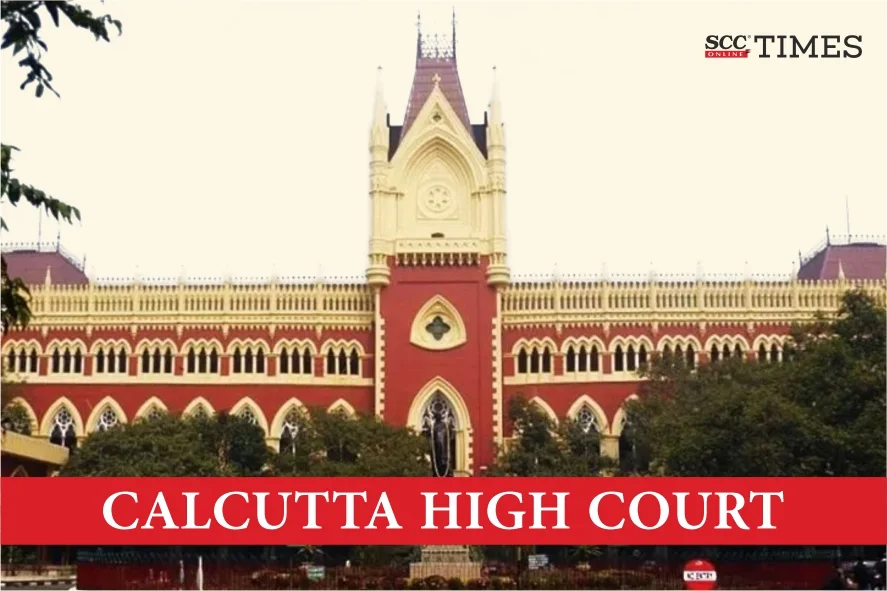Calcutta High Court: In a civil revision petition seeking rejection of the plaint under Order VII Rule 11(d) of the Civil Procedure Code, 1908 (CPC) contending trial court’s lack of jurisdiction, a single-judge bench comprising of Prasenjit Biswas,* J., held that the suit, being related to a waqf property, fell within the jurisdiction of the Waqf Tribunal, and the civil court lacked jurisdiction to entertain it. The Court allowed the revision petition and held that the plaint is liable to be rejected under Order VII Rule 11(d) of CPC.
Factual Matrix
In the instant matter, the petitioners-defendants in the filed a revision application against the order of the trial court dismissing their application under Order VII Rule 11(d) of the CPC in Title Suit before the Court of Civil Judge (Junior Division), 3rd Court at Alipore. The suit was filed by the predecessors in interest of the plaintiffs-opposite parties against the petitioners seeking various reliefs regarding the leasehold right, title, and interest of a property, alleging interference from the Mysore Family Fateha Fund Committee. Aggrieved by the impugned dismissal of the Order VII Rule 11(d) application, the petitioners filed the present revision before this Court challenging the same.
The petitioner contended that the civill court erred in rejecting their application under Order VII Rule 11(d) of CPC as that the suit was barred by law, specifically citing Sections 83 and 85 of the Waqf Act, 1995 and the matter should have been addressed by the Competent Authority under the Act. However, the plaintiffs contended that the plaint did not show that the suit was barred by any law, as required under Order VII Rule 11(d) of the CPC.
Moot Point
Whether the defendants/respondents herein made out a case for rejection of the plaint under Order VII Rule 11(d) of the CPC?
Court’s Observation
After referring to Saleem Bhai v. State of Maharashtra, (2003) 1 SCC 557; Surjit Kaur Gill v. Adrsh Kaur Gill, (2014) 16 SCC 125 and Madanuri Sri Rama Chandra Murthy v. Syed Jalal, (2017) 13 SCC 174 and the Court observed that the jurisdictional issue should be decided based on the averments in the plaint alone, and the pleas in the written statement were irrelevant at that stage. The Court emphasised that the court should not dissect the plaint’s language but consider it as a whole to ascertain its true import.
“Whether the suit is barred by any law must be determined from the statements in the plaint and it is not open to decide the issue on the basis of any other material including the written statement in the case.”
After considering the parties’ arguments and examining the Sections 83 and 85 of the Waqf Act, 1995, the Court found that the suit fell within the jurisdiction of the Waqf Tribunal as per Section 85 of the Act, thereby barring the jurisdiction of the civil court. Referring to Rajasthan Wakf Board v. Devki Nandan Pathak, (2017) 14 SCC 561; Rashid Wali Beg v. Farid Pindari, (2022) 4 SCC 414 and Sections 83 and 85 of the Waqf Act, 1995, the Court held that the plaint revealed that the dispute related to a waqf property, thereby attracting the application of Order VII Rule 11(d) of the CPC. The Court held that the suit was indeed barred by law and thus qualified for rejection under Order VII Rule 11(d) of the CPC.
The Court stated that the civil court without giving due regard to provisions of law and the issue raised in the application, simply concluded that the question of jurisdiction was a mixed question of law and fact, and it can be decided only after evidence, both oral and documentary, could be adduced. The Couet opined that “the said finding of the trial court is quite infirm, erroneous and discrepant, which requires interference by this court in this revision.”
Court’s Decision
The Court allowed the revision petition and held that the civil court lacked jurisdiction to entertain the suit, and the plaint was liable to be rejected under Order VII Rule 11(d) of CPC.
[S.M. Shahid Alam v. Jyotiranjan Banerjee, 2024 SCC OnLine Cal 1923, order dated 27-02-2024]
*Judgment by Justice Prasenjit Biswas
Advocates who appeared in this case :
Mr. Ganesh Shrivastava and Mr. Sukanta Das, Counsel for the Petitioners
Mr. Saptangshu Basu, Mr. Dwijadas Chakraborty, Counsel for the Opposite Party 1
Mr. T. Chakraborty, Mr. S. Sanyal, Counsel for the State
Md. Salahuddin, Md. A. Zaman, Md. Raziauddin, Counsel for the Wakf Board






